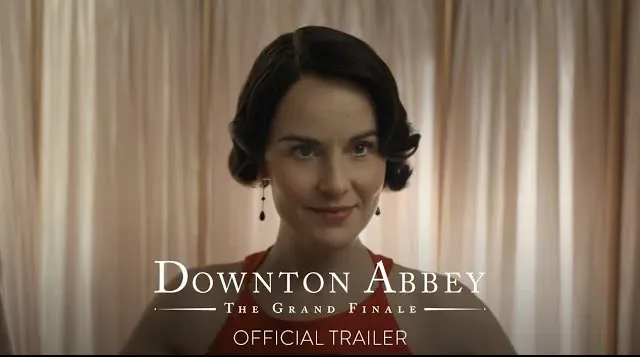Peter Bradshaw finds Downton’s “Grand Finale” silly, surreal and oddly irresistible
Downton Abbey: The Grand Finale arrives billed as the swansong of Julian Fellowes’ long-running saga, but if history is any guide, the farewell will be as final as Frank Sinatra’s last tour. Peter Bradshaw’s review makes one thing clear: this gloriously silly spectacle could roll on forever, and perhaps should.
Both previous Downton films teased their own “last hurrah”, complete with a sunset drone shot and even a subtitle, A New Era. This instalment repeats the trick, promising a definitive close while slyly leaving the door ajar. The result is a film that manages to parody itself while still delivering the lavish escapism that has kept audiences hooked for more than a decade.
Set in London in 1930, the story opens with a surreal sequence that verges on dadaist parody. Lady Mary (Michelle Dockery) attends a grand society occasion with her parents, the Earl and Countess of Grantham (Hugh Bonneville and Elizabeth McGovern). A rumour suddenly circulates: Lady Mary is divorced, and therefore unfit to remain at the party before the royals arrive. The scandal is played with the gravity of a national security alert, Julian Fellowes daring viewers not to chuckle at the absurd seriousness.
In a knowing nod to his earlier screenplay for Gosford Park, Fellowes deploys celebrity cameo as salvation. This time it is Noël Coward, portrayed with arch flair by Arty Froushan, whose arrival smooths over Lady Mary’s supposed disgrace. The high-society hypocrisy, like much of Downton, is presented with both affection and sly mockery.
Life back at the abbey remains as busy as ever. Lord Grantham wrestles with whether to cede the house to Mary and retreat with his wife to the Dower House, now decorated with a distinctly gothic portrait of the late Dowager Countess (a spectral reminder of Maggie Smith). Meanwhile, Lady Grantham’s awkward American brother Harold, played by Paul Giamatti, arrives with Alessandro Nivola’s Gus Sambrook, a smooth financial adviser who can’t help eyeing Mary.
Downstairs, the comedy of manners is just as lively. Housekeeper Elsie Hughes (Phyllis Logan) reassures a nervous Mrs Patmore (Lesley Nicol) about married life, insisting with mischievous candour that conjugal duties are “terrific fun”. Bradshaw jokes the line alone could warrant an 18 certificate.
As ever, the film revels in eccentric rhythms and oddly emphasised shots of characters solemnly thanking each other for their thoughtfulness. It is both daft and compulsively watchable, a cocktail of melodrama and camp that never quite tips into parody.
The review suggests that if another Downton film is made—and who truly doubts it—the characters will inevitably confront the rise of fascism and the looming threat of war. That prospect, he notes, promises another round of diverting spectacle, blending historical drama with the franchise’s trademark blend of pomp and frivolity.
Bradshaw is clear-eyed about the absurdities. He calls it “gibbering, wittering, blithering and surreally enjoyable nonsense”. And yet he cannot hide a fondness for the whole confection. To his mind, Downton’s magic lies precisely in its ability to take the ridiculous seriously and the serious ridiculously, all while inviting audiences to swoon at the grandeur and chuckle at the madness.
Downton Abbey: The Grand Finale may style itself as the end, but the review’s tone suggests it is merely another stop on an endless, indulgent journey. Like shortbread in the Scottish Highlands, it is a tradition too entrenched to ever truly disappear.
The film is released on 11 September in Australia and 12 September in the UK and US
